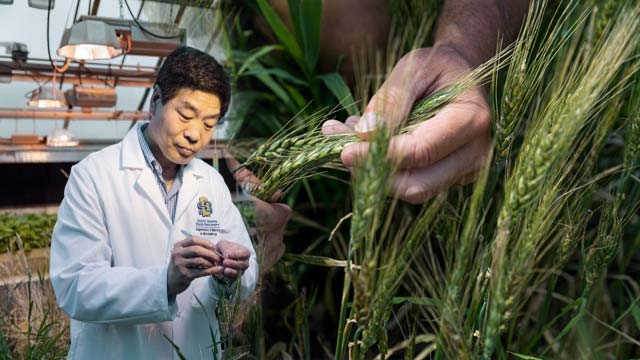
Wheat is the world's second-most produced cereal crop and is fundamental in foods like bread, pasta, and cereals. South Dakota plays a significant role in the U.S. wheat industry, producing over 60 million bushels in 2023, valued at about half a billion dollars. Optimal wheat growth occurs between 70F and 75F, though winter wheat can withstand temperatures as low as 40F. However, temperatures above 90F can lead to heat stress and substantial yield losses, posing a risk as the Great Plains, known as the "wheat basket of the world," is expected to face more frequent heatwaves due to climate change.
Researchers at South Dakota State University (SDSU) are addressing this issue by modifying wheat genetics to improve heat tolerance. Led by Professor Wanlong Li, the team is employing precision genome editing technology to enhance wheat's resilience. The project, funded by a $270,244 grant from the U.S. Department of Agriculture's National Institute of Food and Agriculture, aims to develop wheat varieties that can better withstand high temperatures. Traditional breeding methods are time-consuming, but genome editing could significantly reduce the time needed to introduce new traits.
The research focuses on the enzyme Rubisco activase, believed to enhance heat tolerance and photosynthesis. Using CRISPR technology, the team will edit the targeted gene and test the new wheat plants under various conditions. Jeremy Chambers, head of SDSU's Department of Biology and Microbiology, highlighted the project's potential impact on sustaining wheat health in warmer climates. The two-year project, titled "Precision Editing of TARCA2 for Enhanced Heat Tolerance in Wheat," could have significant implications for global food security and agricultural resilience in a warming world.





















